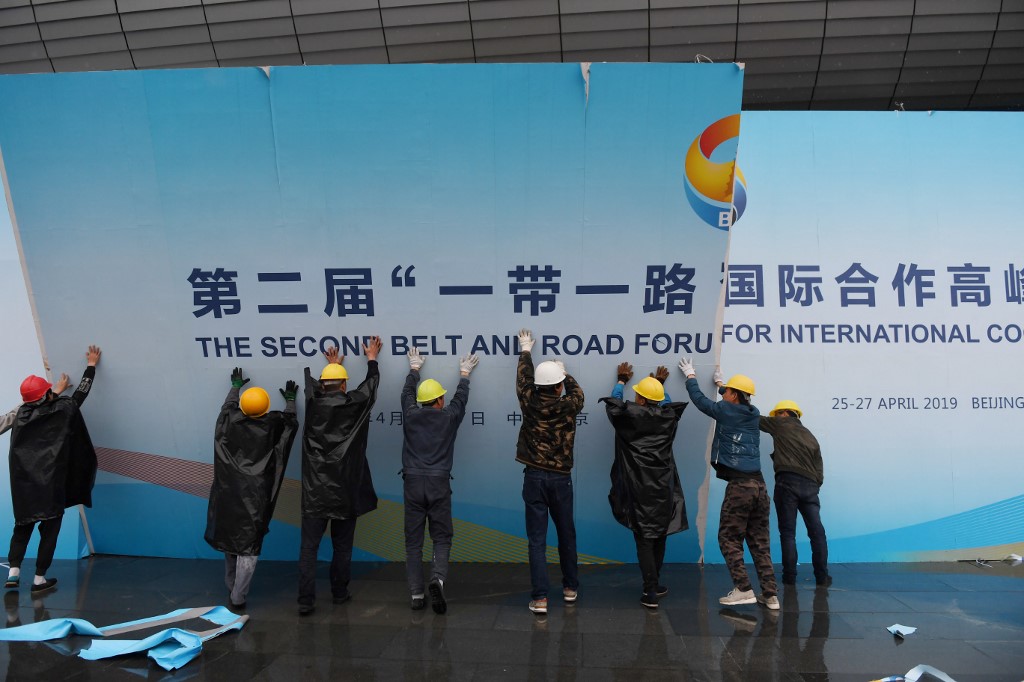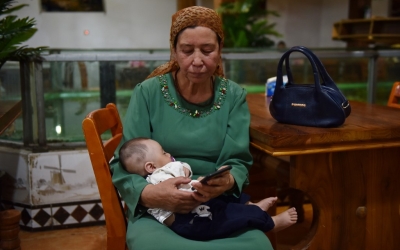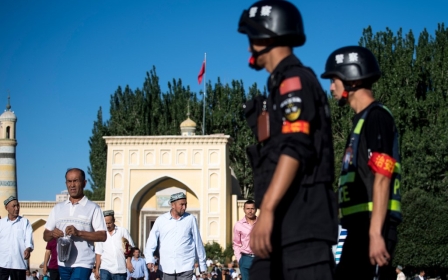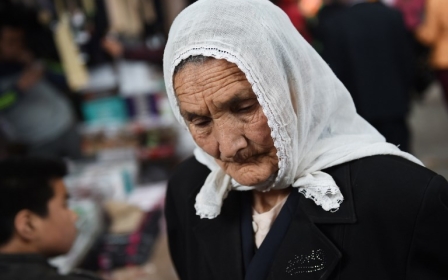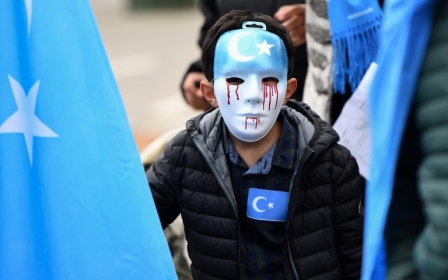China Cables: When will the Muslim world speak up for persecuted Uighurs?
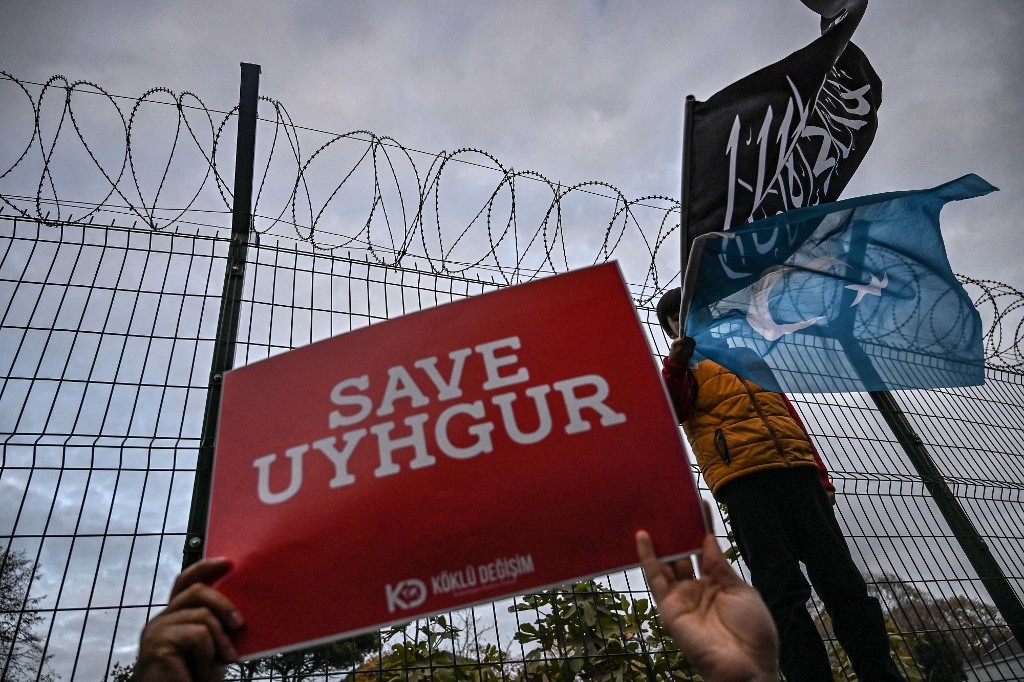
The China Cables, a trove of more than 400 pages of leaked internal Chinese government documents, prove beyond all doubt that China is working to systematically erase the identity and culture of millions of ethnic Uighur Muslims - the largest industrial-scale persecution of a religious minority since the Holocaust.
The revelations have blown an elephant-sized hole in Beijing’s efforts to quell international condemnation with its stubborn denials and perverse propaganda.
'Stronger sense of happiness'
Until this moment, the international community has been divided into two camps over China’s criminalisation of Islam and detainment of hundreds of thousands of Uighurs in its network of Muslim concentration camps. Western democracies express outrage and Middle Eastern states tacitly approve Beijing’s “counterterrorism measures”, while even praising the Communist Party for its mythical “vocational and training camps”.
Beyond the economic realm, it's likely that authoritarian regimes in the Middle East will remain silent towards China's human rights violations against Uighur Muslims
In July, more than a dozen Muslim-majority countries - including Algeria, Bahrain, Egypt, Kuwait, Saudi Arabia, Oman, Pakistan, Qatar, Somalia, Sudan, Syria, Tajikistan, Turkmenistan and the United Arab Emirates - co-signed a letter to the United Nations that unconscionably applauded China for bringing a “stronger sense of happiness, fulfillment, and security” to Xinjiang. Qatar has since removed its signature, saying it wants to pursue a “neutral stance”.
New MEE newsletter: Jerusalem Dispatch
Sign up to get the latest insights and analysis on Israel-Palestine, alongside Turkey Unpacked and other MEE newsletters
But now that the cloak of plausible deniability has been pulled back, revealing the full gamut of China’s crimes against humanity - including executions, torture, rape, forced indoctrination to atheism, forced family separations, forced marriages, forced adoptions, forced sterilisations, and even credible accusations of live organ-harvesting programmes - how will the Middle East respond?
How will leaders of Muslim-majority countries, particularly those who boastfully proclaim to be the guardians of Islam and protectors of the Ummah, respond to what is now smoking-gun evidence of Beijing’s efforts to wipe millions of Muslims and scores of mosques off the map in northwestern China?
Business as usual
If the Syrian government’s welcoming of Beijing’s invitation to join its trillion-dollar Belt and Road Initiative this week is any indication, then it will surely be a case of business as usual for relations between China and other Middle Eastern countries.
In attempting to secure Chinese investment in Syria’s reconstruction, Syrian President Bashar al-Assad has presented Beijing with a number of proposed infrastructure projects.
“We have proposed around six projects to the Chinese government in line with the Belt and Road methodology and we are waiting to hear which project, or projects, is in line with their thinking. I think when this infrastructure is developed, with time, the [Belt and Road Initiative] passing through Syria becomes a foregone conclusion,” Assad told a Chinese television network.
Given that the Assad regime is responsible for the killing of half a million Syrians and the displacement of millions more, turning the last remaining opposition stronghold of Idlib into something akin to an open-air concentration camp, it’s easy to see why the Syrian regime has no moral concern over China’s persecution of its pesky Muslim population.
As for the other aforementioned Middle Eastern states, they’re awash in Chinese investment, with China replacing the US as the largest source of foreign investment in the region. These countries are seeking to lure even bigger and better bilateral trade deals with the Asian economic superpower. Since 2005, the Middle East and North Africa region has received around $190bn in Chinese investments, according to the American Enterprise Institute’s China Global Investment Tracker.
Enhancing regional power
According to Jonathon Fulton, an assistant professor of political science at Zayed University in Abu Dhabi: “China’s economic presence in the Middle East represents a strategic approach to enhancing its regional power and influence. For their part, leaders in the Middle East are responsive. Economic relations with China do not come with the same type of conditionality that tend to accompany Western states and institutions; political reform and human rights are not part of the package with Beijing.”
Beyond the economic realm, it’s likely that authoritarian regimes in the Middle East will remain silent towards China’s human rights violations against Uighur Muslims, given these governments are also habitual violators of basic human rights. Saudi Arabia and Egypt routinely incarcerate and execute political prisoners.
If were they to condemn China for doing the same, it would only invite the international community to meddle in their affairs - a paralysing fear of many governments in the region.
Many of these governments also hold the same panic level reaction towards political Islam as senior officials within China’s Communist Party, as evidenced by the punishing Saudi-led blockade against Qatar for its ties to Iran and the Muslim Brotherhood. Middle Eastern governments seek to parrot China’s propaganda, not denounce it.
Ultimately, the China Cables expose not only Beijing’s craven policies towards its Muslim citizens, but also the shameless duplicity of Middle Eastern states. We can expect a continuation of their platitudes towards the impoverished and persecuted Palestinian people, but nothing for those crushed under the heel of China.
From the view of those who hold thrones, palaces and mansions in Riyadh, Dubai, Damascus and Cairo, might is right, money talks, and the rest is a conversation, apparently.
The views expressed in this article belong to the author and do not necessarily reflect the editorial policy of Middle East Eye
This article is available in French on Middle East Eye French edition.
Middle East Eye delivers independent and unrivalled coverage and analysis of the Middle East, North Africa and beyond. To learn more about republishing this content and the associated fees, please fill out this form. More about MEE can be found here.



